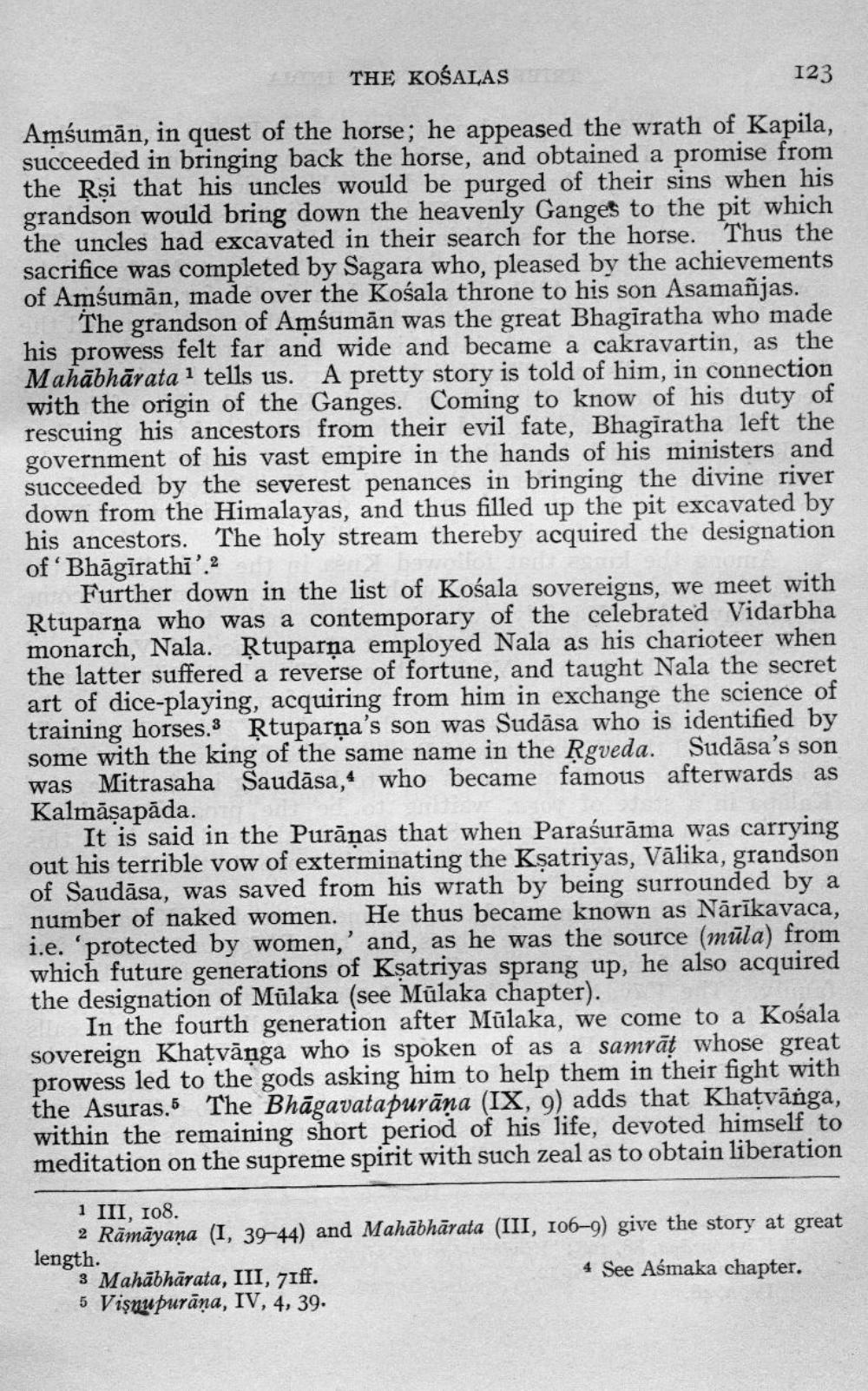________________
THE KOŠALAS
123 Amśumān, in quest of the horse; he appeased the wrath of Kapila, succeeded in bringing back the horse, and obtained a promise from the Rşi that his uncles would be purged of their sins when his grandson would bring down the heavenly Ganges to the pit which the uncles had excavated in their search for the horse. Thus the sacrifice was completed by Sagara who, pleased by the achievements of Amśumān, made over the Kośala throne to his son Asamañjas.
The grandson of Amśumān was the great Bhagiratha who made his prowess felt far and wide and became a cakravartin, as the Mahābhārata 1 tells us. A pretty story is told of him, in connection with the origin of the Ganges. Coming to know of his duty of rescuing his ancestors from their evil fate, Bhagiratha left the government of his vast empire in the hands of his ministers and succeeded by the severest penances in bringing the divine river down from the Himalayas, and thus filled up the pit excavated by his ancestors. The holy stream thereby acquired the designation of 'Bhāgirathi’.2
Further down in the list of Kośala sovereigns, we meet with Rtuparsa who was a contemporary of the celebrated Vidarbha monarch, Nala. Rtuparņa employed Nala as his charioteer when the latter suffered a reverse of fortune, and taught Nala the secret art of dice-playing, acquiring from him in exchange the science of training horses.3 Řtuparņa's son was Sudāsa who is identified by some with the king of the same name in the Rgveda. Sudāsa's son was Mitrasaha Saudāsa, who became famous afterwards as Kalmāsapāda. ge
It is said in the Purāṇas that when Paraśurāma was carrying out his terrible vow of exterminating the Ksatriyas, Vālika, grandson of Saudāsa, was saved from his wrath by being surrounded by a number of naked women. He thus became known as Nārīkavaca, i.e. 'protected by women,' and, as he was the source (müla) from which future generations of Ksatriyas sprang up, he also acquired the designation of Mülaka (see Mülaka chapter).
In the fourth generation after Mülaka, we come to a Kośala sovereign Khatvāņga who is spoken of as a samrāt whose great prowess led to the gods asking him to help them in their fight with the Asuras, The Bhāgavata purāna (IX, 9) adds that Khațvānga, within the remaining short period of his life, devoted himself to meditation on the supreme spirit with such zeal as to obtain liberation
1 III, 108.
2 Rāmāyaṇa (I, 39-44) and Mahābhārata (III, 106–9) give the story at great length. 3 Mahābhārata, III, 7Iff.
4 See Aśmaka chapter. 5 Vişnupurāna, IV, 4, 39.




